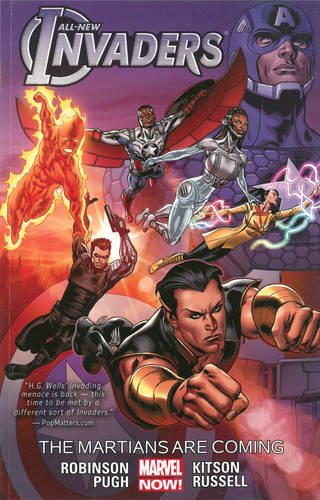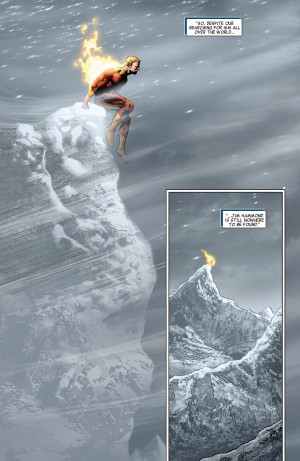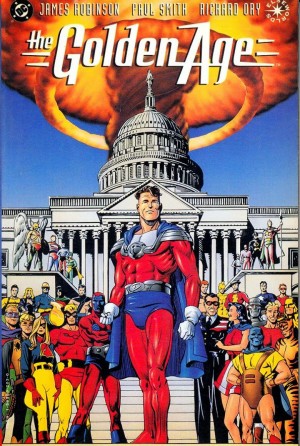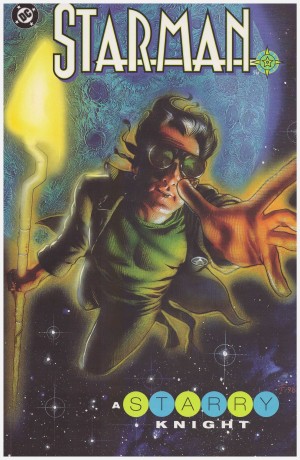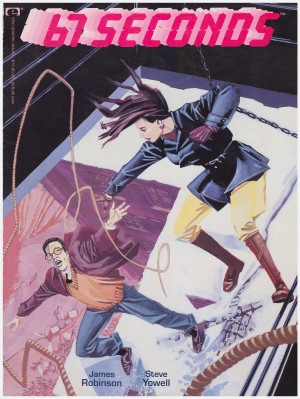Review by Ian Keogh
Whatever plan James Robinson might have had for the Invaders, they appear to have been scuppered by editorial decisions made by those not connected with the series. The decision, for instance, to transform Steve Rogers into man whose physical form now represented his age. Robinson coped very well with the intrusion of Original Sin, producing the series’ best story, and by the time of these issues Secret Wars was on the horizon and Invaders’ days were numbered. Robinson approached the writing in the discursive manner of his acclaimed Starman, setting many plots and mysteries in motion, itemised in the final chapter, and few are neatly tied up.
Yes, the series rather stutters to a conclusion, but it doesn’t discount what’s on offer here, which encompasses the breadth of the Marvel universe. It has seemed as if Robinson’s been using All-New Invaders to reconcile the comics of his youth set far in the future, with the present day continuity now that future’s arrived, along the way tidying up a few other matters. How is it that in the early days of the 21st century the Earth hasn’t been over-run by Martians with the mutant Killraven and his allies fighting a rearguard rebellion? That’s sort of addressed, although not in any definitive fashion, in a chapter primarily set in the dying days of World War I. Legacy has been an important aspect of this series, and that also stretches backwards. That’s immediately followed by a chapter entirely lacking in Invaders, set upon a vast and impressive backdrop echoing Jack Kirby.
As an eighty year old Captain America can have no combat role, those considering the core Invaders as Captain America, Human Torch and Sub-Mariner may be disappointed. Steve Rogers features, but as a planner, and particularly as a confidant in a wistfully written finale. By the end, the only plot that’s really been resolved is the madness of the Human Torch.
The Martians are Coming is an artistic delight. The sample image is Steve Pugh’s opening page, but by the time P. Craig Russell’s finished inking Marc Laming and Barry Kitson’s work, in places you’d not know it wasn’t his own. That’s a nice nod to his cutting his artistic teeth on the Martian invasion in the 1970s.
It’s relevant to speculate at which point Robinson knew the series was to be no more. Only the final chapter indicates any knowledge that matters required wrapping up sooner than planned, and he obviously decided there wasn’t enough space to do so effectively. His chosen finale is surely better than something rushed and disappointing.
As a series, this iteration of Invaders has ultimately promised more than it delivered, and that’s a shame.
